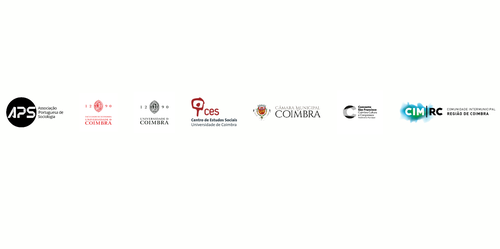Call for papers | Sociology of Law and Justice
Coordinators:
Paula Casaleiro (CES, UC)
Sílvia Gomes (CICS.Nova UNL/ University of Warwick)
Pierre Guibentif (Dinâmia’CET, ISCTE-IUL / MSH Paris-Saclay)
Vera Duarte, suplente (CICS.NOVA, UMinho)
António Casimiro Ferreira, suplente (CES, UC)
Susana Santos, suplente (CIES, ISCTE-IUL)
The polarization of societies appears as a theme in the domain of law and society too. The Global Meeting on Law & Society that the Thematic Section of Sociology of Law and Justice co-organized in July of this year 2022, entitled “Rage, Reckoning & Remedy”, focused on the imprint of colonialism and slavery. This is an important issue of polarization both in national societies as well as in what can be qualified as world-society. Therefore, the theme of the XII Portuguese Congress of Sociology can be articulated in a very constructive way with the agenda of our thematic section.
The work submitted to this section should contribute to the deepening of the very concept of “polarization”. Actually, law can be described as a tool for restoring the integrity of the social fabric when it is at stake. Considering this vocation, it may be worth listing the mechanisms recently developed in the legal world that can be described as responses to polarization phenomena. In an effort to better capture what can be understood by polarization, these mechanisms can also be compared with others, developed in the face of other types of challenges to the integration of societies. Accordingly, recent efforts to make justice more accessible (e.g., creating justices of the peace), better readable legislation (e.g., publishing summaries of the legislation in plain language) or more participatory democracy (e.g., participatory budgets, among other examples) can be compared with previously developed mechanisms. The last ones include consultation and negotiation mechanisms (e.g., the creation of the social and economic council, or the social concertation council) or mechanisms to combat social exclusion (such as, in Portugal, the creation of the minimum income guarantee [Minimum Income Scheme]). These comparisons can feed the reflection on the differences between conflict and social inequalities, on the one hand, and social polarization, on the other hand.
Based on operational definitions of social polarization, sociological studies on law and justice should be able to contribute to its thorough observation. This can be done by addressing on-going research on the representations of law and justice; by discussing forms of violence on social and justice domains, such as intimate partner violence, violence in the workplace or violence in deprivation of liberty places; by observing new forms of deviancy, or cases of civil disobedience, new forms of litigation and new criminalization processes; judicial production; the (re)configurations of legal professions; etc.
The sociology of law and justice, with its aptitude to make researchers and practitioners dialogue, could also be an appropriate place to evaluate the potential of combined strategies to re-establish effective mediations between the world of science and the world of law, on the one hand, and the worlds of ‘non-experts’, on the other. For instance, this can be achieved through the development of new forms of participatory research, which would open several spaces for interaction between these various worlds.
In the sessions of our thematic section, we hope to debate works on legislative, judicial or administrative processes, or even on the mobilization of law and rights on the periphery of the places of production of state law. These studies can feed the debate on phenomena of social polarization, or inspire responses to such phenomena. More specific topics could be:
- Attitudes towards law and rights;
- Trust in justice;
- Forms of violence and illegalism that reveal polarizations;
- Access to law and justice for different social groups;
- Social polarizations and deprivation of liberty spaces;
- The polarizing potentials and strategies of social mobilization in the claims for rights;
- Social justice in the face of the challenges of polarization;
- Polarizations in the legal world.
We call for participation of sociologists, in their different working contexts, and of professionals in Law and Justice to this debate. One that is intended to be broad and plural enriched by the various professional and research experiences in the multiple domains of Sociology of Law and Justice. It is strongly encouraged the presentation of proposals for communications, posters or contributions in other formats (video), based on completed or on-going research work, on research-action processes, on theoretical and/or methodological reflections, or on professional experiences.
Proposals will be assessed and selected on the basis of the following criteria:
- relevance of the questioning;
- rigor and coherence in defending this questioning;
- presumed quality of the base of the work presented (which may be of a varied nature: empirical research, theoretical discussion, experiences gathered in a professional context, etc.).
The rules and deadlines to consider for the submission of abstracts, as well as more information about the XII Portuguese Congress of Sociology, can be found on the APS website at http://www.aps.pt.
The Thematic Section's coordination will select the best communications to be proposed for publication in the journal SOCIOLOGIA ON LINE
PDF Version
